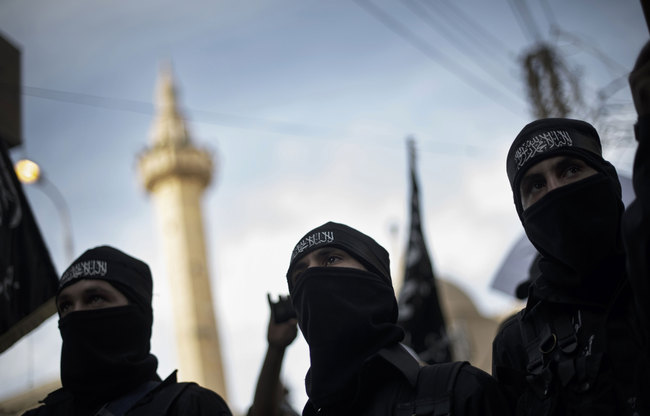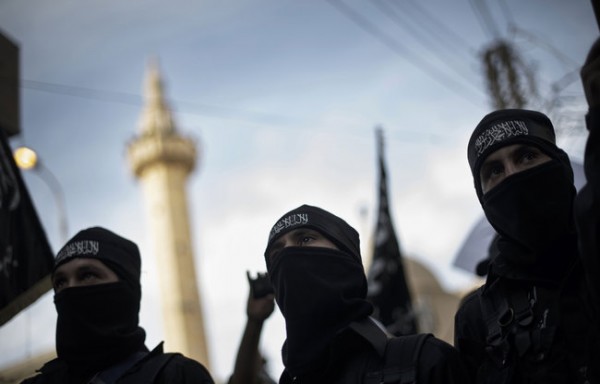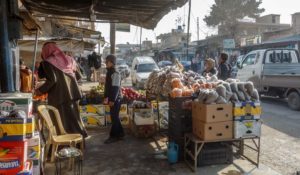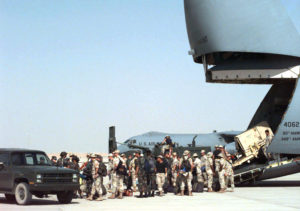
By: Nohad Topalian
Source: http://al-shorfa.com/en_GB/articles/meii/features/2013/04/10/feature-01
Recent statements by al-Qaeda leader Ayman al-Zawahiri and Abu Bakr al-Baghdadi, leader of the Islamic State of Iraq, calling for the establishment of an Islamic state in Syria are drawing condemnation from all spectra of the Syrian opposition.
In a recorded internet message posted Sunday (April 8th), al-Zawahiri urged those fighting the regime of Syrian President Bashar Assad to “establish an Islamic state [to prepare] for the return of the caliphate”.
The people of the Levant must fight in the name of God with the aim of establishing his sharia law as the ruling system, he said.
Less than 48 hours later, al-Baghdadi said in an audio message posted on jihadist websites, “It is now time to declare to the people of the Levant and the world that Jabhat al-Nusra (JAN) is but an extension of the ‘Islamic State of Iraq’ and part of it.”
He announced the merging of the two groups under one name, the “Islamic State of Iraq and the Levant”.
On Wednesday, JAN leader Abu Mohammed al-Joulani responded to the message, saying his group had received financial and military support from al-Qaeda in Iraq and pledging allegiance to al-Zawahiri.
He said he was not consulted prior to al-Baghdadi’s announcement about a merger, saying he does not want to “rush” matters that require “patience” and “consultation” with “jihadist factions”.
He confirmed that efforts were under way to build an Islamic state in Syria.
‘AL-QAEDA HAS NO RIGHT TO IMPOSE ITS STATE ON SYRIA’
Luay al-Meqdad, media and political co-ordinator for the Free Syrian Army (FSA), told Al-Shorfa, “We are really surprised these statements were issued at this time.”
“Everyone knows our goal is clear and our rifles are clearly pointed at the regime, to overthrow it and deliver to the Syrian people the democracy they seek,” he said. “We were unaware there are some who want to merge a hypothetical Syrian entity with a hypothetical entity in Iraq.”
“If al-Qaeda did not realise its project in Iraq, how can it hope to implement it in Syria?” he asked.
“The Syrian people launched the revolution, not Ayman al-Zawahiri and al-Qaeda. Therefore, he and others have no right to impose their state on Syrians,” added al-Meqdad, who said yesterday that “there has never been and there will never be a decision at [the FSA] command level to co-ordinate with JAN”.
“The growing influence of armed groups that do not represent the goals of the Syrian revolution does not constitute a threat to us,” he said. “These forces exist and operate on the ground because they receive funding.”
“We have repeatedly warned that these groups have backing and that they have been receiving too much attention in the media,” he said.
On Wednesday, president of the National Coalition for Syrian Revolutionary and Opposition Forces Ahmed Moaz al-Khatib said al-Qaeda’s ideology is not suitable for the coalition.
Al-Khatib wrote on his Facebook page that “al-Qaeda’s ideology does not suit us, and the revolutionaries inside Syria have to take a clear decision in this matter.”
‘SYRIANS ARE NOT EXTREMISTS’
The Syrian people have the first and last say in how their country should look, not al-Zawahiri, what he stands for or his organisation, said George Sabra, vice president of the National Coalition and chairman of the Syrian National Council (SNC).
“Al-Qaeda does not represent any component of the Syrian people,” Sabra told Al-Shorfa, adding that al-Zawahiri is attempting “to break the siege on al-Qaeda, its ideology and its actions after it has become isolated” among Muslims.
“Syria is a multicultural, diverse country,” he said. “What al-Zawahiri and others in al-Qaeda are calling for has no place in Syria because Muslims in Syria are not extremists and Islam is a moderate [religion] and has a long history of openness to all.”
While Sabra condemned the growing influence of extremist groups, such as JAN, he said they “do not pose a threat, and we are not intimidated by them, though some things do worry us.”
Tensions are rising between Syrian citizens and members of JAN, who have been trying to impose a strict Islamist agenda in several areas, according to activists and residents.
“We are aware of all these issues and we are working to address them politically,” Sabra added.
Marwan Hajjo al-Rifai, a member of the coalition’s legal committee, said al-Zawahiri’s call is nothing new.
“Whenever an uprising or revolution erupts anywhere in the world, al-Qaeda’s leader issues a statement calling for the establishment of a caliphate,” he said.
“Syrian society is Muslim and diverse, and everyone calls for freedom, justice, equal opportunity and the establishment of a civil state,” al-Rifai said.
“Syria’s Islam is moderate and the revolutionary movement advocates diversity free of sectarianism, and this in itself rebuffs calls made by al-Zawahiri and other members of al-Qaeda,” he added.
“The slogans of Islamist groups and those of the revolution do not seek the same [end result],” he said, adding that the form of state and ruling system “will be determined by the ballot box”.
DANGER OF EXTREMIST GROUPS IN SYRIA
Qassim Qaseer, who specialises in fundamentalist movements and extremist Islamist groups, said al-Zawahiri’s and al-Baghdadi’s statements were “very dangerous”.
The danger in Syria lies in the “openness of extremist Islamist groups in Iraq, as well as those in Syria, to fighters of all nationalities”, he said.
Fighters are coming from Chechnya, Belgium, Jordan and the Arab Maghreb, Qaseer added.
Hardly a day goes by without news or reports of jihadists of Arab or foreign nationality travelling to Syria to join the fight against the Syrian regime. Many of these fighters join extremist organizations such as JAN.
In March 2013, a group of fighters announced the creation of the “army of emigrants” under the command of Abu Omar al-Chechen, according to Chechen news agency Kavkaz Center
According to the agency, the group is fighting primarily in the Aleppo province, and has more than 1,000 members, mostly from different countries, including Chechnya.
The presence of these groups is especially dangerous because of Syria’s strategic location near a number of influential countries, Qaseer said.
Were an Islamic emirate to be established on the border with Iraq, it would impact Lebanon, Turkey and Jordan, among other countries, he said.
“If the regime falls, the battle will be between two components: the FSA and the moderate forces that support it versus extremist Islamist groups,” he added.
These two groups would fight over two projects: the civil state project the revolution is calling for, and the extremist Islamist state project, he said.







